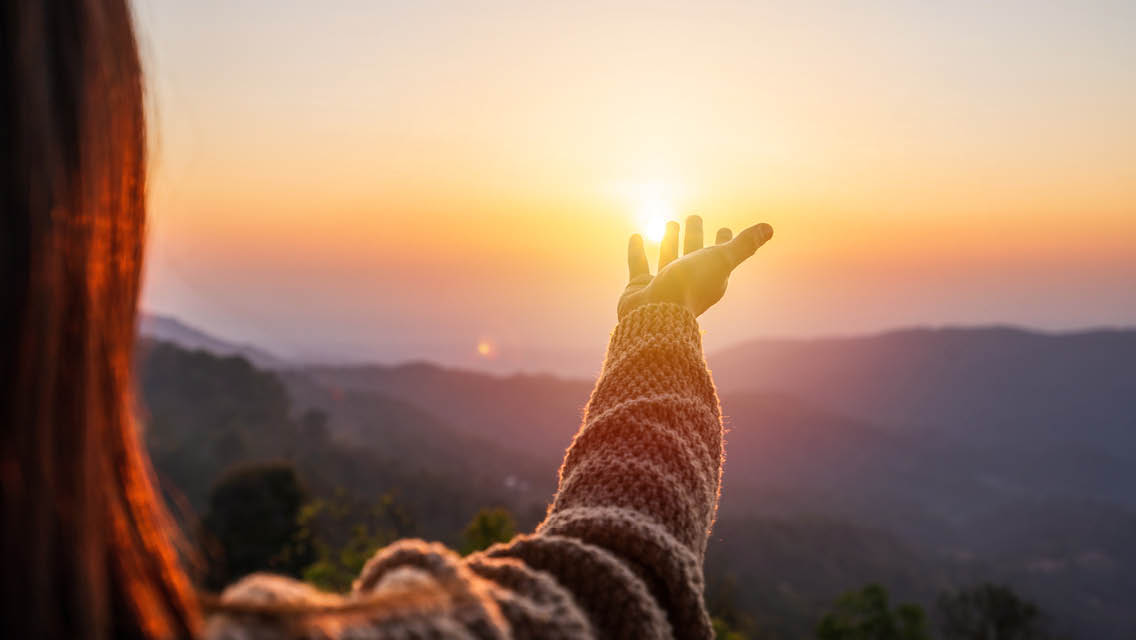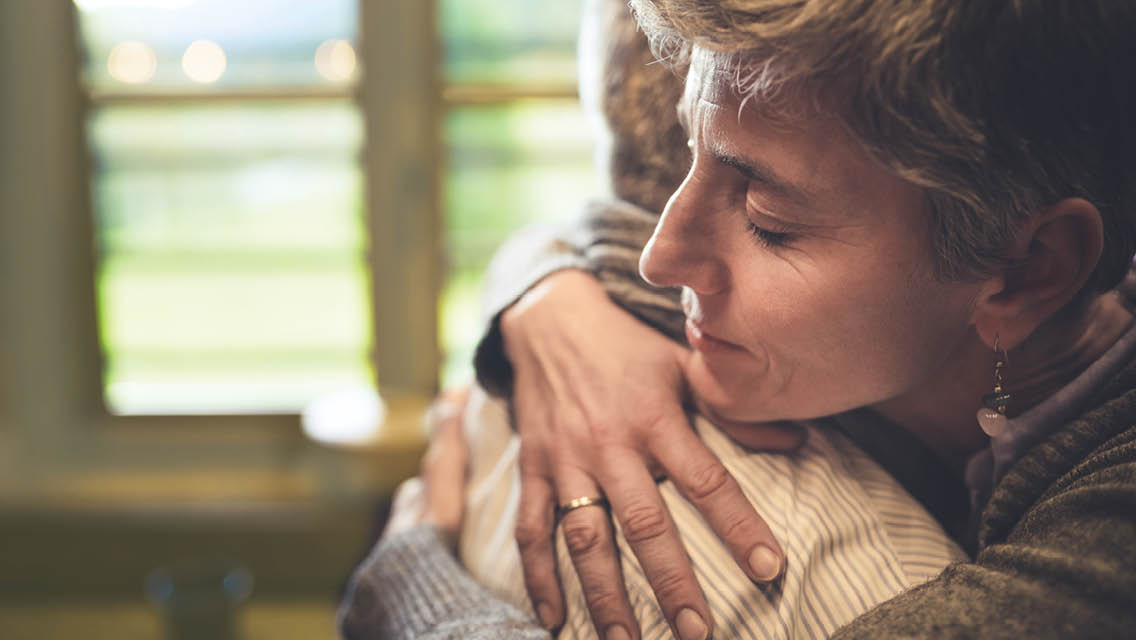Like many of us, renowned mindfulness trailblazer Sharon Salzberg grappled with feelings of fear and isolation during the COVID-19 pandemic. To cope while isolating at home in Barre, Mass., she looked to wisdom from spiritual traditions, insights from psychology research, and lessons from a host of teachers and experts.
Salzberg also found inspiration from everyday people who, amid the chaos and grief of the pandemic, rose beyond their own suffering to support others in pain.
“Precious things were revealed during this time — qualities of connection, care, love, relationship, and a sense of belonging, rather than estrangement, in this world,” she recalls.
Salzberg explores these revelations in her latest book, Real Life: The Journey From Isolation to Openness and Freedom. She examines the energetic and mental states of contraction and expansion — dissimilar ways of being that either close us to life or open us up to it.
“Real Life is about the inner journey — and journeys — we make when we decide to fully live life, whatever the world has presented to us, knowing that life is short and also that life is sacred,” she writes.
We spoke with Salzberg about meeting life’s real challenges with more strength and grace.
Q&A With Sharon Salzberg
Experience Life | In Real Life, you describe contraction as a state of feeling afraid, limited, or trapped. What else might that closed-down state look like?
Sharon Salzberg | I was using the example of fear very personally, but there are lots of contracted states. Maybe you’re enraged all the time or feeling like you never have enough.
But really, it’s not so much the state itself — it’s not even the intensity of the feeling. You could have an intense feeling, but if you can get a little space from it, that’s a different thing.
It’s more the way we relate to something when it overcomes us — how we become almost defined by a thought pattern or a mood, a feeling or a desire. Often, we either identify with the feeling, or we are in battle with it. We hate it, or we hate ourselves for feeling it.
EL | What are some examples of expansive states?
SS | There are many, including generosity, gratitude, love, and kindness. These are all giving states. I reference the research of psychologist Barbara Fredrickson a lot — her “broaden and build” theory is about how positive emotions build up our internal resources.
If we set out to cultivate gratitude, for example, and we write down three things we’re grateful for each day, even if they seem small, that gratitude will grow. The nature of gratitude is expansiveness, openness, and inner strength, and the more you cultivate gratitude, the more expansive you will feel.
EL | In addition to feeling better, what else can we gain from cultivating more expansive states?
SS | Other benefits are creativity and seeing more options. We are able to listen. We aren’t attached to a single resolution to a problem. We’re curious and interested, and we have more perspective about things.
We also realize that feeling negative feelings isn’t a problem. We can recognize, Oh, yeah, this is my previous conditioning. We don’t have to reject the feeling or reject ourselves for having the feeling.
EL | It sounds like cultivating expansiveness is an “inside job.”
SS | There are the external circumstances and there are the internal resources with which we meet those circumstances.
We see this in everyday life: If you didn’t sleep well last night, and then you overhear an upsetting comment at work, you may feel distraught. Whereas if you did sleep well — and you had a beautiful meal with old friends, and it’s your birthday — you may hear that same comment and just think, Wow, that person’s having a really bad day.
When we neglect tending to our internal resources, we can get caught in habits like taking things personally or feeling incapable of something we actually are capable of doing. We all have our conditioning, so it takes intentionality to pay attention to what’s good. It takes exploration into unfamiliar terrain to realize your internal circumstance is a habit.
EL | Could focusing on our own inner state prevent us from engaging with the problems of the outside world?
SS | In some ways, cultivating states like gratitude has a bad reputation. A lot of people say, “Well, if you cultivate gratitude, you’re being sentimental or you’re going to be grateful for little crumbs that come your way and you’re not going to seek external change.”
I asked David DeSteno, a psychology researcher at Northeastern University who studies emotions and decision-making, about this and he said that’s not true. If you’re trying to seek change in the system and you practice gratitude, you have more energy. You have more strength, rather than feeling exhausted and depleted.
Not only that, he said that cultivating gratitude creates a strong tendency to pay it forward.
So, it’s not that we never try to change external circumstances — we do seek change, but maybe not in such a violent way, with so much dislike and hatred.
EL | How important is mindfulness in nurturing expansive qualities in our lives?
SS | Mindfulness is the place where we can fully be with whatever’s coming up. With mindfulness, space happens and options arise that we would never have seen if we’d been all caught up in contraction.
For example, if you’re mindful, you can recognize when you start to feel angry — as the anger is bubbling up, not after you’ve sent the angry email. You have a balanced relationship to the anger, so you don’t get consumed by it. And you don’t try to deny it or reject it.
To learn to both see things more clearly and relate to things in a more open-hearted and present way, you need some practice of introspection. Whether that’s through meditation or journaling, or through being in nature or in therapy, we need some process where aspects of our experience are being revealed to us — sometimes for the first time, or sometimes just more clearly.
EL | What skills help us become more resilient to life’s contracting forces?
SS | Our biggest engine for growth and change is self-compassion — it’s critical. When we buy into judgment, we become demoralized and fatigued. With self-compassion we have the energy to say, “I’m starting over,” which is resilience.
Another is perspective, remembering that illness, pain, shame, and fear are all part of life. They’re things we experience, but we’re not alone and things change. Even if something’s perpetual, it’s going to have change within it. So, we can relax and experience just one moment of difficulty at a time.
And then there’s the act of reaching out, of forming a community, even if it’s not many people. Find some community of understanding, where you can reflect on what you’re going through, where you allow your vulnerabilities to be shown, and where you support one another in truthfulness.





This Post Has 0 Comments